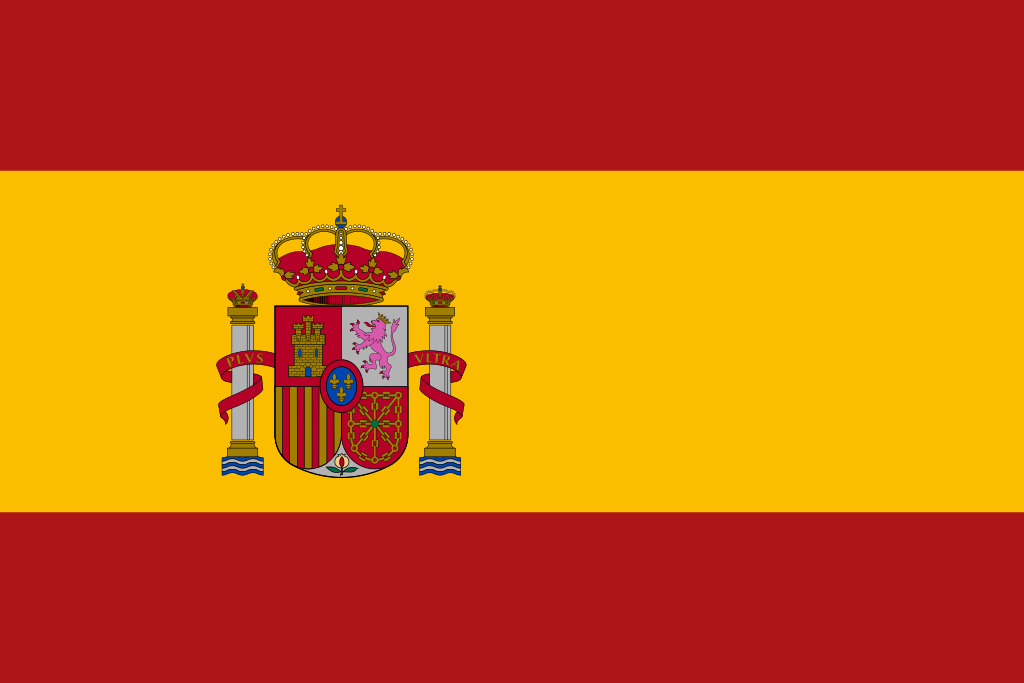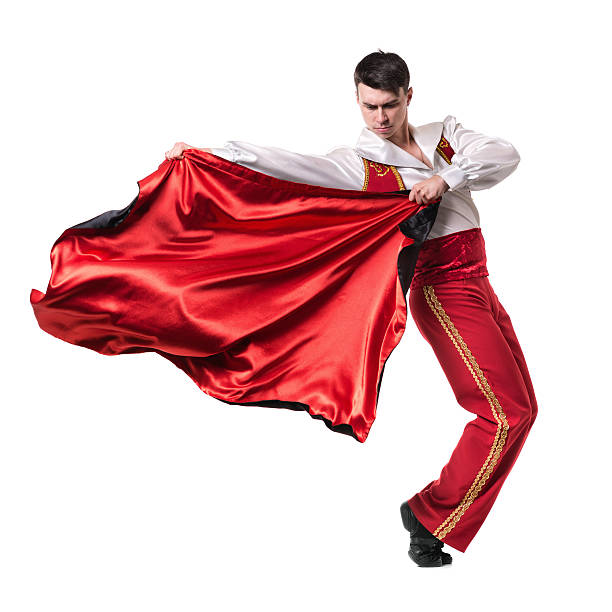Languages - Spanish
At St Peter’s C of E Primary School, we aim to provide all of our children with a high-quality education in Foreign Languages, which develops their love of learning about other languages and cultures. Our current language taught is Spanish; however, we strive to provide children with opportunities to experience a range of other languages. We aim to ensure that by the end of our children’s primary education, they have acquired an understanding of both spoken and written Spanish, the confidence to speak in Spanish with others, and know how important other languages can be in their future.

A Foreign Language Education at St Peter’s means that children leaving in year 6 are able to:
- Listen attentively to spoken language and show understanding by joining in and responding.
- Explore the patterns and sounds of language through songs and rhymes and link the spelling, sound and meaning of words.
- Engage in conversations; ask and answer questions; express opinions and respond to those of others; seek clarification and help.
- Speak in sentences, using familiar vocabulary, phrases and basic language structures.
- Develop accurate pronunciation and intonation so that others understand when they are reading aloud or using familiar words and phrases.
- Present ideas and information orally to a range of audiences.
- Read carefully and show understanding of words, phrases and simple writing.
- Appreciate stories, songs, poems and rhymes in the language.
- Broaden their vocabulary and develop their ability to understand new words that are introduced into familiar written material, including through using a dictionary.
- Write phrases from memory, and adapt these to create new sentences, to express ideas clearly.
- Describe people, places, things and actions orally and in writing.
- Understand basic grammar appropriate to the language being studied, including (where relevant): feminine, masculine and neuter forms and the conjugation of high-frequency verbs; key features and patterns of the language; how to apply these, for instance, to build sentences; and how these differ from or are similar to English.
- Experience a Spanish visitor at school to enhance their learning of the language, culture and country.
- Watch well-known films and television shows in Spanish to support and further their learning of the language.
- Experience Spanish Day at school, learning the history of the country through dance, food and song.
- Travel abroad to Spain to fully immerse themselves in the language and culture.*
*A possible residential option for the Y6 leavers.
What children at St Peter’s say about Spanish at our school:
“It is my favourite language that I have learnt at school”.
“It is my favourite subject; it is easy and interesting!”
“I love it, it is interesting to learn all the different phrases in another language”.
“It is helping me to speak with my family that are Spanish”.
“It is so easy, and I really enjoy it as it is brand new, and I can speak Spanish on holiday now!”
“I find it so fun, and it is so nice to learn about all the different languages and cultures around the world. I like that I can speak to my mum in Spanish and tell her all the new things I have learnt!”

Intent
St Peter’s CEP School intends to use the Language Angels scheme of work and resources to ensure we offer a relevant, broad, vibrant and ambitious foreign languages curriculum that will inspire and excite our pupils using a wide variety of topics and themes. All pupils will be expected to achieve their full potential by encouraging high expectations and excellent standards in their foreign language learning - the ultimate aim being that pupils will feel willing and able to continue studying languages beyond key stage 2.
The intent is that all content will be continuously updated and reviewed annually, creating a dynamic programme of study that will be clearly outlined in both long-term and short-term planning. This will ensure that the foreign language knowledge of our pupils progresses within each academic year and is extended year upon year throughout the primary phase and, in so doing, will always be relevant and in line with meeting or exceeding national DfE requirements.
The four key language learning skills; listening, speaking, reading and writing will be taught and all necessary grammar will be covered in an age-appropriate way across the primary phase. This will enable pupils to use and apply their learning in a variety of contexts, laying down solid foundations for future language learning and also helping the children improve overall attainment in other subject areas. In addition, the children will be taught how to look up and research language they are unsure of and they will have a bank of reference materials to help them with their spoken and written tasks going forward. This bank of reference materials will develop into a reference library to help pupils recall and build on previous knowledge throughout their primary school language learning journey.
The intent is that all pupils will develop a genuine interest and positive curiosity about foreign languages, finding them enjoyable and stimulating. Learning a second language will also offer pupils the opportunity to explore relationships between language and identity, develop a deeper understanding of other cultures and the world around them with a better awareness of self, others and cultural differences. The intention is that they will be working towards becoming life-long language learners.
Implementation of our Foreign Languages Curriculum at St Peter’s
All classes will have access to a very high-quality foreign language curriculum using the Language Angels scheme of work and resources. This will progressively develop pupil skills in foreign languages through regularly taught and well-planned weekly lessons in KS2 which will be taught by class teachers.
Children will progressively acquire, use and apply a growing bank of vocabulary, language skills and grammatical knowledge organised around age-appropriate topics and themes - building blocks of language into more complex, fluent and authentic language.
All teachers will know where every child is at any point in their foreign language learning journey.
The planning of different levels of challenge (as demonstrated in the various Language Angels Teaching Type categories) and which units to teach at each stage of the academic year will be addressed dynamically and will be reviewed in detail annually as units are updated and added to the scheme. Lessons offering appropriate levels of challenge and stretch will be taught at all times to ensure pupils learn effectively, continuously building their knowledge of and enthusiasm for the language(s) they are learning.
Language Angels are categorised by ‘Teaching Type’ to make it easier for teachers to choose units that will offer the appropriate level of challenge and stretch for the classes they are teaching.
Early Language units are entry-level units and are most appropriate for KS1 and Year 3 pupils or pupils with little or no previous foreign language learning. Intermediate units increase the level of challenge by increasing the amount and complexity (including foreign language grammar concepts) of the foreign language presented to pupils. Intermediate units are suitable for Year 4-5 pupils or pupils with embedded basic knowledge of the foreign language. Progressive and Creative Curriculum units are the most challenging units and are suitable for Year 6 pupils or pupils with a good understanding of the basics of the language they are learning. Grouping units into these Teaching Type categories ensures that the language taught is appropriate to the level of the class and introduced when the children are ready. Children will be taught how to listen and read longer pieces of text gradually in the foreign language, and they will have ample opportunities to speak, listen to, read and write the language being taught with and without scaffolds, frames and varying levels of support.
Early Language Units (entry-level) and Core Vocabulary lessons are designed to run for approximately 30 minutes. Intermediate, Progressive and Creative Curriculum units are designed to run for approximately 45 minutes.
Units, where possible and appropriate, will be linked to class topics and cross-curricular themes. Children will build on previous knowledge gradually as their foreign language lessons continue to recycle, revise and consolidate previously learnt language whilst building on all four language skills: listening, speaking, reading and writing. Knowledge and awareness of required and appropriate grammar concepts will be taught throughout all units at all levels of challenge. Teachers are provided with a Progression Map and Grammar Grid (downloadable from the “Curriculum Guidance” area of the Language Angels website) to ensure all children are progressing in their foreign language learning skills and are taught the appropriate grammar at the right time in their foreign language learning journey. Grammar rules and patterns will be taught by the level of challenge:
- We start with nouns and articles and 1st person singular of high-frequency verbs in Early Learning units.
- We move on to the use of the possessive, the concept of adjectives, the use of the negative form, conjunctions/connectives and introduce the concept of whole regular verb conjugation in Intermediate units.
- We end with opinions and introduce the concept of whole high-frequency irregular verb conjugation in Progressive units.
Grammar is integrated and taught discreetly throughout all appropriate units. Teachers can also use the specific Grammar Explained units to ensure pupils are exposed to all of the appropriate grammar, so they are able to create their own accurate and personalised responses to complex authentic foreign language questions by the end of the primary phase.
The Progression Map shows precisely how pupil foreign language learning across the key skills of speaking, listening, reading, writing and grammar progresses within each Language Angels ‘Teaching Type’ and also how the level of learning and progression of each pupil is increased as pupils move across each subsequently more challenging Language Angels ‘Teaching Type’. It is a visual demonstration of the progression that takes place WITHIN a ‘Teaching Type’ and also ACROSS each ‘Teaching Type’.
The school has a unit planner in place which will serve as an overall ‘teaching map’ outlining for all teachers within the school what each class in each year group will be taught and when it will be taught. Each class in each year group will have an overview of units to be taught during the academic year to ensure substantial progress and learning is achieved. Each teaching unit is divided into 6 fully planned lessons.
- Each unit and lesson will have clearly defined objectives and aims.
- Each lesson will incorporate interactive whiteboard materials to include ample speaking and listening tasks within the lesson.
- Lessons will incorporate challenge sections and desk-based activities that will be offered will three levels of stretch and differentiation. These may be sent home as homework if not completed in class.
- Reading and writing activities will be offered in all units. Some extended reading and writing activities are provided so that native speakers can also be catered for.
- Every unit will include a grammar concept which will increase in complexity as pupils move from Early Language units, through Intermediate units and into Progressive units.
- Extending writing activities are provided to ensure that pupils are recalling previously learnt language and, by reusing it, will be able to recall it and use it with greater ease and accuracy. These tasks will help to link units together and show that pupils are retaining and recalling the language taught with increased fluency and ease.
Units are progressive within themselves as subsequent lessons within a unit build on the language and knowledge taught in previous lessons. As pupils progress through the lessons in a unit they will build their knowledge and develop the complexity of the language they use. We think of the progression within the 6 lessons in a unit as ‘language Lego’. We provide blocks of language knowledge and, over the course of a 6-week unit, encourage pupils to build more complex and sophisticated language structures with their blocks of language knowledge.
Pupil learning and progression will be assessed at regular intervals in line with school policy. Teachers will aim to assess each language skill (speaking, listening, reading and writing) twice throughout each scholastic year to be able to provide reference points against which learning and progression in each skill can be demonstrated.
In addition to following the lessons provided in the Language Angels scheme of work and resources, teachers are encouraged to also do some of the following:
- Foreign language celebration assemblies.
- Cookery sessions of traditional foods from the country of the language being studied.
- Fashion shows demonstrating typical/traditional clothing from the country of the language being studied.
- Weather forecasts based on maps from the country of the language being studied.
- School celebrations of national feast days from the country of the language being studied when appropriate to facilitate a whole school approach to foreign language learning along with improved cultural awareness.



Inclusion
All pupils throughout the school, shall have the opportunity to develop foreign language capability. The school promotes equal opportunities and fairness of distribution of foreign language resources. Children with other languages at home are encouraged to use them for educational benefit and parents are offered advice about what is appropriate. Efforts are made to ensure that languages used at home are highlighted in the classroom once a teacher has been notified.
French Club

Our weekly French Club for Years 1-3 and 4-6 is run by 'La Jolie Ronde', an award-winning provider of French language learning for children. Our French Club encourages children to become confident and enthusiastic language learners and helps to provide them with a skill for life. Children attending the club benefit from a structured and progressive program and, over time, begin to speak, read and write independently.
Useful Links
Crickweb - range of different matching games to be used in the classroom or individually
Spanish story videos told by a native Spanish speaker (with English subtitles)
Topmarks - search for a range of different Spanish games and resources